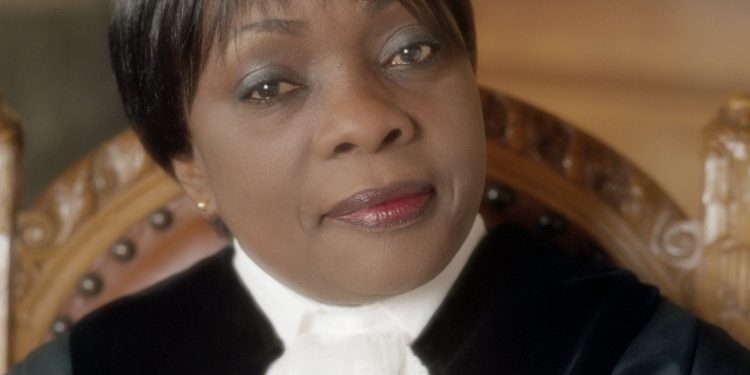By CHIMPREPORTS
British-trained Ugandan ICJ judge Julia Sebutinde on Friday, January 26, 2024, voted against South Africa in a historic genocide case against Israel.
Seventeen Judges, led by an American and a Russian, and including ones each from Israel and South Africa, sat on the panel which dismissed Israel’s request to throw out a case accusing it of genocide in Gaza.
The judges on the International Court of Justice, the UN’s highest judicial body, deliberated for two weeks behind closed doors on South Africa’s request to order a halt to Israel’s offensive.
The keenly awaited verdict on the Gaza war was delivered in The Hague on Friday. Judges stopped short of ordering a ceasefire, but demanded that Israel try to contain death and damage in its military offensive. Sebutinde voted against the decision.
In an 11-page dissent, Sebutinde argued the dispute was “essentially and historically a political one” between Israel and the Palestinians rather than a legal matter for the court.
Provocative statements by senior Israeli officials, relied on by South Africa as evidence of genocidal intent, were “taken out of context” and referred to Hamas rather than the Palestinian people, Sebutinde wrote.
In addition, she argued the order to Israel to do everything possible to prevent genocide merely restates its existing duties under international law and “is therefore redundant”.
Reactions
Ambassador and Permanent Representative of Uganda to the United Nations, Adonia Ayebare, said Sebutinde’s decision does not represent that of the Government of Uganda.
“Justice Sebutinde ruling at the International Court of Justice does not represent the Government of Uganda’s position on the situation in Palestine. She has previously voted against Uganda’s case on DRC. Uganda’s support for the plight of the Palestinian people has been expressed through Uganda ‘s voting pattern at the United Nations,” Ayebare said in a post on X.
Monitor Publications Limited (MPL) Managing Director, Susan Nsibirwa, however, wonders “Why is it a crime to have a dissenting opinion?”
The ICJ Decision
Balkees Jarrah, associate international justice director at Human Rights Watch, describes the ICJ’s ruling as a “landmark decision” that puts Israel and its allies on notice that immediate action is needed to prevent genocide and further atrocities” against the people of Gaza.
“Lives hang in the balance, and governments need to urgently use their leverage to ensure that the order is enforced. The scale and gravity of civilian suffering in Gaza driven by Israeli war crimes demands nothing less,” Jarrah said.
“The ICJ’s speedy ruling is recognition of the dire situation in Gaza, where civilians face starvation and are being killed daily at levels unprecedented in the recent history of Israel and Palestine.”
Jarrah also noted that the court’s “clear and binding orders raise the stakes for Israel’s allies to back up their stated commitment to a global rules-based order by helping ensure compliance with this watershed ruling”.
Additional reporting by Aljazeera








Discussion about this post